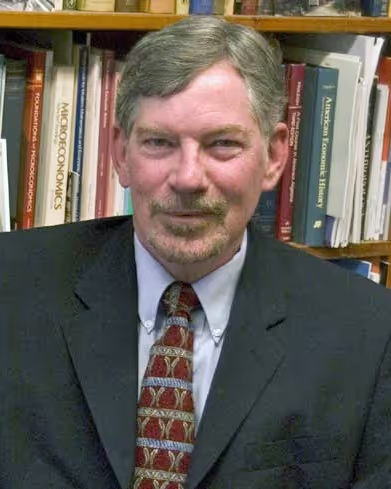There are many good reasons to become an economist. There are also many downsides but these can be overcome with careful, strategic planning about where to study, what subfields to specialize in, and where to work once your degree is in hand. Here are my thoughts about the good, the bad, and the ugly truths of being an economist.
The good:
- Economics stands alone among the social sciences in having a 150 year history as an established, respected, and influential discipline. It has a unified core theory, the mathematical model of Walraisan general equilibrium theory (GET), that serves as a starting point for all economists, whether they are working within that framework, or are critics of that worldview. This is a tremendous advantage compared to the other social sciences. As Robert Heilbroner remarked “The greatest fear lurking in every economist’s heart is the fear of being a sociologist.”
- People listen to economists. There is no Presidential “Council of Sociology Advisors.” For better or worse, if policy advice is given by an anthropologist, economist, political scientist, and sociologist, people would listen to the economist, not the others. Even though the field is currently dominated by the most conservative theories and policy approaches, there exists many alternatives with rich intellectual histories including institutional economics, post Keynesian economics, and evolutionary economics.
The bad:
- The formal, mathematical grounding of economics gives the field a focus and a unique intellectual unity. But as Heilbroner pointed out “Mathematics has given economics rigor but also mortis.” The problem is not mathematics itself, but the peculiar kind of mathematics that drives neoclassical economics. The purpose of GET is to prove that Adam Smith’s “invisible hand” of the unconstrained market will ensure the optimal satisfaction of people’s preferences for market goods. The assumptions built into the analysis guarantee the results. One consequence is the deification of the market as the supreme arbiter of human affairs. Whatever the problem is the answers are always the same. “Let the market take care of it”, or “Adjust the relative prices so the market can take care of it.”
The ugly
- Economics is a closed shop. E.O. Wilson used the word “hermetic” to describe economics. Standard economic theory is “sealed off from the complexities of human behavior and the constraints imposed by the environment.” (Consilience, p. 197). The hermetic label also applies to the stranglehold on the field by a handful of economics departments that largely control access to the top journals and employment by the top departments. See the documentation of this in “The Superiority of Economics” by Fourcade, Ollion and Algan, (2015) Journal of Economic Perspectives 29(1), 89-114) https://pubs.aeaweb.org/doi/pdfplus/10.1257/jep.29.1.89
Where to get an economics education
- In terms of what you’ll learn, all graduate programs are pretty much the same. Whenever I visit a university I make a point to go to the bookstore and look at the economic texts used. They’re all the same whether it’s Harvard, Chicago, or any other economics department with a graduate program.
- In choosing where to study, look for potential mentors, someone whose ideas resonate with you. Contact them before applying and meet with her/him if possible. Unless you’re a graduate of one of the top 5-10 departments, where you get your degree is secondary to how much you know. And the value of a degree from Harvard, Chicago or MIT will wear off in a few years if you don’t do solid research and publish it in good journals.
- The stronger your background in mathematics, the better will be your experience in graduate school. You won’t have to spend most of your time learning mathematics, not economics. You can understand how standard economic assumptions are driven by the mathematics.
Funding is important. Money is time to study.
Where to get an academic position
If you who are not interested in spending your life doing study after study extoling the virtues of unregulated markets, you should consider a career in departments other than economics. Geography departments, environmental studies programs, and public policy programs are all looking for economists who can work with non-economists and who are comfortable doing truly interdisciplinary work.
For those working outside the GET framework it is essential to be thoroughly grounded in neoclassical general equilibrium theory. This analytical framework is the bread and butter of modern economics. It is responsible for the dominance of economics among the social sciences and is the main reason for the “superiority” of economics in current political discourse. One may lament the privileged position of standard economic theory, but that privileged position makes it mandatory for critics to be thoroughly versed in the mathematical and logical structure of Walrasian general equilibrium theory.
Evolution and the future of economics
Economics shows some positive signs that it might be breaking away from the dominance of neoclassical theory and GET. Some changes are happening within the field and some without. The limitations of standard economics has left a policy vacuum that is being filled by other behavioral sciences. Here are a few examples of areas ripe for further research:
Behavioral economics and neuroeconomics have challenged the axioms of consumer choice and opened up the public policy discussion. The behavioral critiques are different because they put the assumptions GET makes about decision making on an experimental footing. Behavioral studies show that the neoclassical model of human behavior makes poor predictions, but they also show that consistent patterns show up within particular cultures. If you know the cultural mores of a particular society you can make reasonably good predictions of behavior in that society. Controlled experiments can help identify what’s missing from standard economics including the role of automatic and emotional processing in decision making, and how the brain mediates specific kinds of decision-making like discounting the future. The structure of the human brain shows the evolution of the “sociality” of the human species.
Cross-cultural studies have documented the uniqueness (and strangeness) of market cultures compared to other ways of organizing human societies. There is no universal “human nature.” A cross cultural comparison by Henrich et al. found that members of Western market societies are among the least representative populations one could find for generalizing about humans. Culture is important in explaining behavior. Furthermore, as the neuroscientist Bruce Wexler argues, the human brain continues to develop after birth and may be hard-wired differently in different cultures.
Henrich, J., S. Heine, and A. Norenzayan. 2010. Behavioral and Brain Sciences 33, 61-135.
Wexler, B. 2006. Brain and Culture. MIT Press.
Discounting the future is unavoidable in the individual-at-a-point-in-time perspective of GET. Something delivered in the future is worth less than the same thing received now. In the neoclassical framework, policies to curb climate change are justified only if the discounted value of the flow of consumption goods is increased by climate change mitigation. The choice of a discount rate drives the results of economic models of climate change, the consequences of resource scarcity, the future destabilizing effects of inequality, and other potential existential crises. Establishing a policy framework for truly social valuation, taking into account cultural differences and the well-being of the distant future, is one of the greatest challenges for economic theory and policy.
An evolutionary perspective can bring back what’s missing from economic theory. History, context, lock-in, and contingency are central to understanding evolutionary processes. The intellectual histories of economics and evolutionary biology are closely intertwined because both subjects deal with living, complex, evolving systems. Because the subject matter is similar, contemporary evolutionary thought has much to offer to economics. In recent decades theoretical biology has progressed faster than economics in understanding phenomena like hierarchical processes, cooperative behavior, and selection processes in evolutionary change. Economists should learn from the successes and the (relative) openness of evolutionary biology.
Wilson, D.S. and J. Gowdy. 2015. “Human Ultrasociality and the Invisible Hand: Foundational Developments in Evolutionary Science alter a Foundational Concept in Economics” Journal of Bioeconomics 17, 37-52.
Wilson, D.S. and J. Gowdy. 2013. “Evolution as a General Theoretical Framework for Economics and Public Policy”, Journal of Economic Behavior and Organization 90S, S3-S10.

















